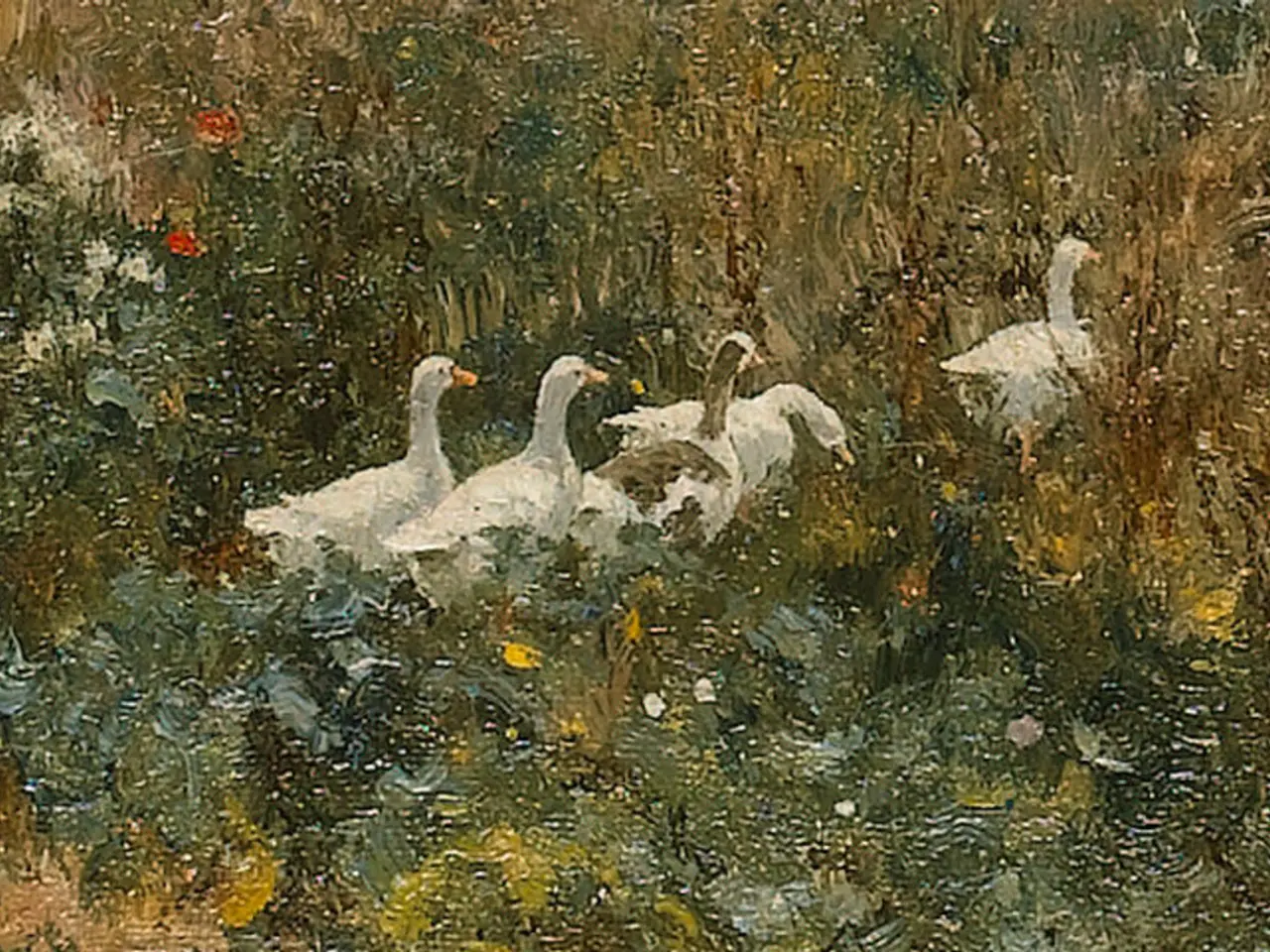Sad conclusion reached: events unfolded in a disheartening manner
In a quiet suburban neighborhood, a dispute over a group of ducks has sparked conversations about the importance of community cohesion and the erosion of trust that can occur when individual interests are prioritized over the common good.
Lutz Mehlhorn, a resident, had been taking care of the ducks, providing them with daily food and fresh water, ever since they hatched in early June. The ducks' rearing area, water basin, and observation chairs remained, but the ducks were no longer present.
The ducks' disappearance occurred at 6 pm feeding time, apparently at the hands of a resident who did not follow the community's dialogue and acted selfishly. The event left Mehlhorn questioning how we can tackle big challenges if we act selfishly, disregarding the common good and nature.
The ducks were led by an experienced wild duck and were part of a community that was planning the ducks' flight path after several weeks of careful rearing. The ducks' disappearance is likely due to an individual acting against the neighborhood's consensus.
Mehlhorn's observations suggest a connection between selfish behavior and disregard for the common good, affecting people, society, and nature. The incident serves as an indicator of the lack of consideration for nature's concessions for human individuals, even for a short period.
From a social psychological perspective, individuals interpret information based on their own values and social environments. A person ignoring community consensus often conflicts with the group’s “anchor points,” contributing to social friction and judgment against that individual. When such a breach happens, community members may perceive the individual as violating social norms, leading to social sanctions, ostracism, or loss of influence.
The social implications of this disregard for community consensus include distrust and resentment toward the individual acting for personal gain, conflict and division disrupting community harmony, decreased cooperation and participation in community processes, and challenges to governance and rule enforcement, risking long-term communal breakdown.
Despite the setback, Mehlhorn and others reached a consensus to allow the ducks to stay, with some residents taking initiative to provide necessary resources. The event sparked new quality neighborly conversations, revealing more about long-time acquaintances and their values.
The magical garden, where the ducks resided, appears dull and lifeless without the ducks' quacking and splashing. Mehlhorn concludes that some people are unwilling to accept minor restrictions to their daily routine, even for nature's benefit. As the neighborhood continues to grapple with the aftermath of the ducks' disappearance, the importance of communication, transparency, and consistent enforcement of shared rules to maintain community trust and cohesion becomes evident.
References:
[1] Kramer, M. D., & Tiedens, L. Z. (2007). Social psychology. Pearson Education.
[2] Miller, R. (2016). The psychology of moral judgment. Yale University Press.
- Despite the initial incident causing distress and disregard for communal concerns within the home-and-garden setting, a few residents have taken up the responsibility to care for the ducks, demonstrating a shift in lifestyle towards a more sympathetic approach towards pets and nature.
- The dismissal of community consensus, in this instance concerning the ducks, has highlighted potential consequences on the lifestyle and social relationships within the neighborhood, including the erosion of trust, increased conflict, and disruption of harmony – all aspects that are fundamental to home-and-garden community cohesion.




